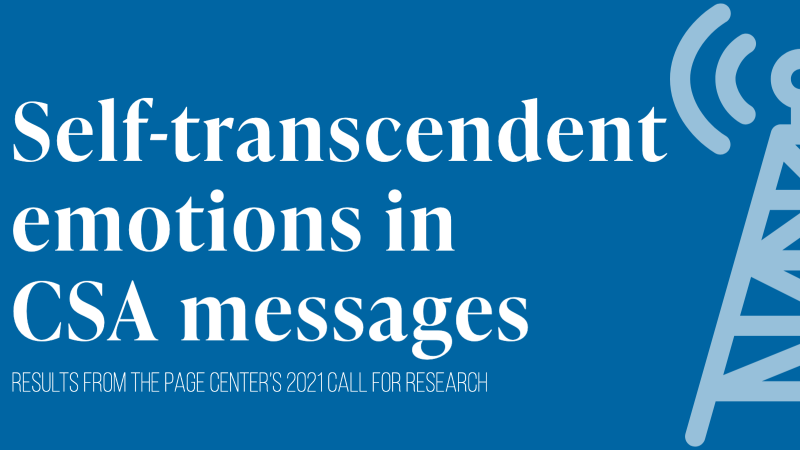Exploring the role of self-transcendent media experiences in corporate social advocacy
April 3, 2023

By Alan Abitbol, University of Dayton, and Matthew VanDyke, University of Alabama
Research has shown that consumers expect companies to take a stand on sociopolitical issues. Yet, more and more, it seems that when they do, consumer reactions can be visceral and swift (both in favor and against). So, why do consumers often have such a deep emotional response to the stances companies take on sociopolitical issues?
One explanation may be that many of the stances organizations take on issues and the communication surrounding those stances ask consumers to consider causes or issues that are self-transcendent—bigger than the individual and bigger than the company or its products and services. Research on self-transcendent emotions has supported the idea that socio-politically-charged campaigns may evoke reactions that go beyond buying a product or supporting a cause; they may involve more complex responses that may lead to the desire to fulfill intrinsic or even altruistic needs.
However, no research to date has examined the prevalence or nature of self-transcendent emotions communicated through corporate social advocacy (CSA) messages, until now.
Through a grant from the Page Center, we conducted a content analysis to examine the presence, prevalence, and nature of self-transcendent emotions in CSA messages. We analyzed 352 messages, which included all CSA messages from 116 of the largest 250 U.S. companies (the remaining companies did not host written or video statements we defined as CSA) during 2020 and 2021. We looked at company websites for news stories and releases that were posted on the companies’ online newsroom and videos posted on company YouTube pages.
We found that self-transcendent emotional elicitors were present in both written and video CSA messages. This is an important finding because the transcendent media literature, which has previously examined entertainment and political messages, primarily reported results of studies examining video messages.
Within the context of CSA messages:
a) Companies were more likely to highlight their advocacy for sociopolitical issues in written form
b) These statements appeared to attempt to elicit self-transcendent emotions.
Often, companies would demonstrate their support for a cause by highlighting all the great things they were doing for the cause, seemingly an attempt to highlight the company’s “excellence” (regarding their performance) in response to the issue.
Also, the majority of the sociopolitical stances companies made were positive and advocated for a cause, however, most stances that companies took did not fit with the company’s mission. It seems companies are advocating for causes regardless of their industry standing and mission-cause fit because they know such topics matter to their consumers.
Interestingly, the margins in which companies support causes that are divorced from their mission varied across industries. Energy, food, and health companies were more likely to support causes that “fit” with the industry, even though the number of messages that were congruent with mission were at or less than 50 percent, compared to more consumer-front facing industries like retail and finance/insurance. And the causes companies tend to advocate for were current and relevant to salient current events.
This study provides an in-depth look into the CSA-related messages companies produce to indicate to their customers what they stand for and against. As this research demonstrates, companies seem to be making genuine attempts to elicit emotion in the communication of their sociopolitical stances, regardless of message format. And companies seem to be paying most attention to the social relevancy and timeliness of the issue versus if it fits well with what they do as a business.
Moving forward, the results of this study will inform a survey-experiment to understand the effects of eliciting self-transcendent emotions in corporate social advocacy messages. Specifically, the second study will test how self-transcendent emotional elicitors affect American adults’ perceptions of their relationships with companies and the company’s reputation.
Based on results from the content analysis, the experiment will examine how self-transcendent emotional elicitor type and relevancy to company mission impact organization-public relationships and company reputation perceptions.
Overall, this research will advance our theoretical and practical understanding of the prevalence and nature of self-transcendent emotional elicitors in corporate social advocacy messages, and the consequences of eliciting such emotions from the public.
This research was funded by a 2021 Page/Johnson Legacy Scholar Grant from a call for proposals on corporate social advocacy.

